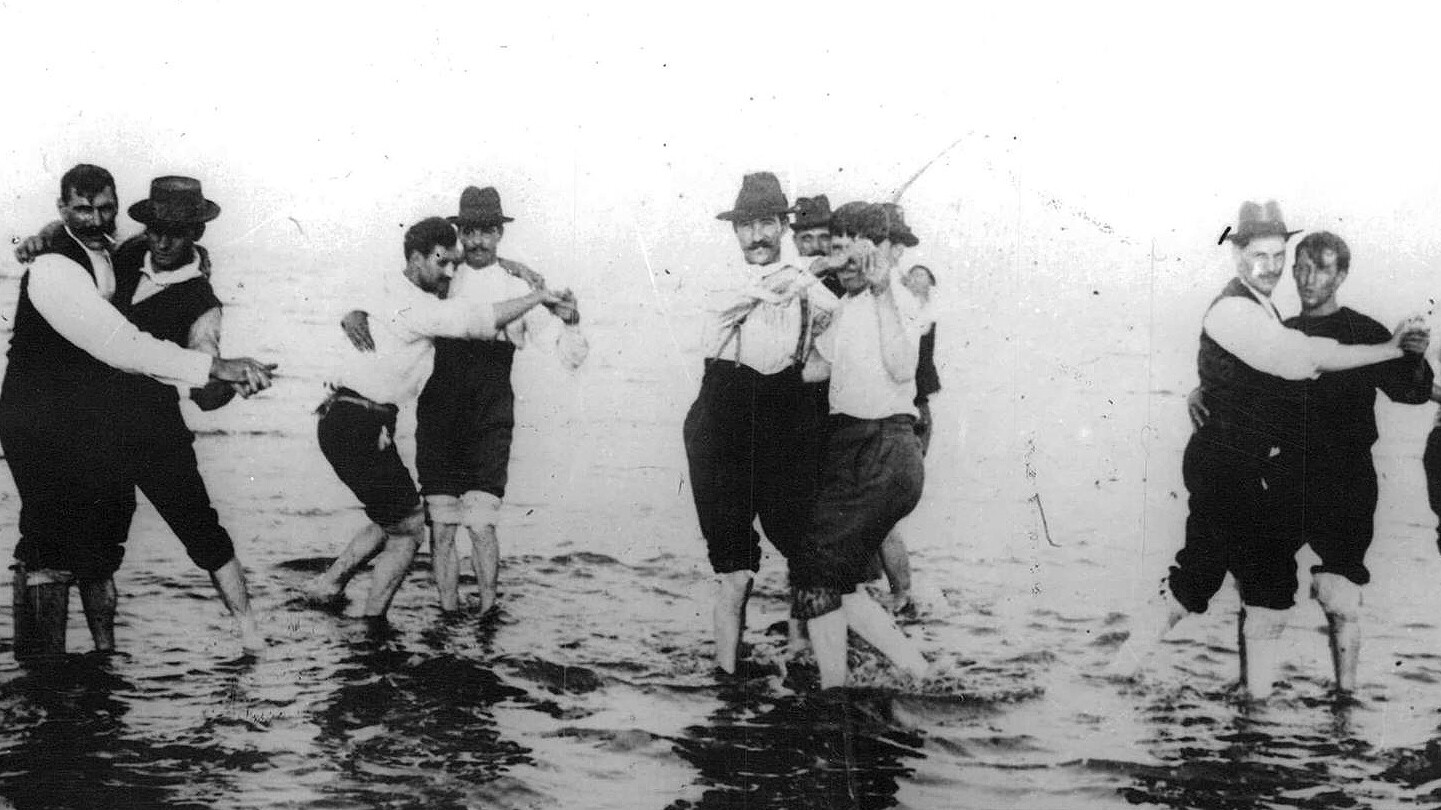Mass protests in Tbilisi forced the withdrawal of a draft law on “transparency of foreign influence,” which threatened civil organizations and media outlets with foreign-agent status. Participating in the protests, filmmaker Salomé Jashi vividly describes the scene of solidarity in front of Parliament, while Keti Chukhrov provides an in-depth analysis of the mobilization and its historical and political background. What differentiated the March protests from ones that failed in the past, Chukhrov argues, is the mass participation of youth and their decentralized organization. “The girls handing roses to the riot police or putting heart stickers on their shields; the teens, as they were sprayed by water cannons, holding up posters that said ‘Let’s splash’ … all these acts of defiance formed a collective political subject, which, despite the unequal struggle with the police, continued to resist courageously.”
Franco “Bifo” Berardi writes of the new uncanny engendered by AI technologies, and their entwinement with geopolitical, environmental, and psychological crises: “The cognitive automaton and living chaos are spiraling in the skyline of the century.” In “Future Paracosms and Their Infrastructures,” Agnieszka Polska considers the impact of AI tools specifically on artists and filmmakers. Starting from the notion of “paracosms”—the imaginary worlds created by children—she writes that AI potentially “provides everyone with sufficient means to build their own paracosm, engendering a society of daydreamers whose experience is atomized and singular, the notion of collectivity acquiring a completely new meaning.”
Notes continues its focus on cinema: alongside the e-flux film program Landscape Theory: Post-1968 Radical Cinema in Japan, we published film critic and political radical Masao Matsuda’s classic essay “Why Landscape War?,” introducing the concept of landscape in connection with Nagisa Oshima’s 1970 film Tokyo Senso Sengo Hiwa (The Man Who Left His Will on Film). Ayreen Anastas and Rene Gabri discuss their An Untimely Film for Every One and No One, which began as an adaptation of Friedrich Nietzsche’s Thus Spoke Zarathustra set in the contemporary Arab world, but underwent multiple reiterations owing to the upheavals in the region, before being completed in 2018 with the help of Jean-Luc Nancy. Max L. Feldman reviews Steve McQueen’s Sunshine State (2022), bringing out the film’s philosophical layers concerning time and image, the historical experience of race, and the father-son relationship. Turning to Hollywood, Pietro Bianchi considers Steven Spielberg’s autofictional The Fabelmans (2022) as an ironic reflection, from a filmmaker so closely associated with childhood, on what is specifically “adult” about the art of cinema.
Lastly, we present a new installment in our ongoing column The Contemporary Clinic, about current developments and challenges in the field of psychoanalysis: Patricia Gherovici’s “Why I Didn’t Write a Book About Lacan and Tango.” Challenging heterosexual assumptions about the famous dance, Gherovici looks at “tango’s origins in gender-bending and class-crossing,” sidestepping from there to the sexual politics of psychoanalysis. “Is there a logic of gender and sexuality that can teach us to make sense of trans issues as the next civil rights frontier? Are we changing the way we talk about sex and gender?”

